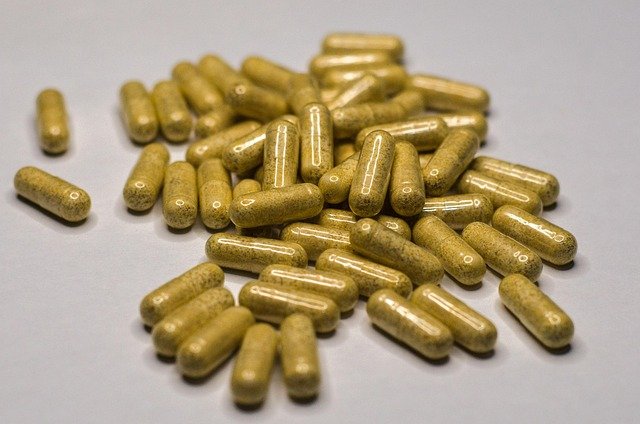Common natural approaches for soothing cough
Persistent coughing can disrupt daily life and affect sleep quality, leaving many people searching for gentle yet effective relief methods. Natural approaches to managing cough symptoms have been used for centuries, offering alternatives to conventional medications. These time-tested remedies focus on soothing irritated airways, reducing inflammation, and supporting the body's natural healing processes through simple ingredients and techniques that are readily available in most homes.

Common natural approaches for soothing cough
Coughing serves as the body’s natural defence mechanism to clear irritants from the respiratory system, but prolonged episodes can become uncomfortable and exhausting. Many individuals seek natural alternatives to complement or replace over-the-counter medications, particularly when dealing with persistent mucus production and throat irritation.
Understanding the underlying causes of cough helps determine the most appropriate natural treatment approach. Whether triggered by seasonal allergies, environmental irritants, or respiratory infections, natural remedies can provide significant relief whilst supporting overall respiratory health.
Information about natural approaches for mucus relief
Several natural substances possess properties that help thin mucus secretions and promote easier expectoration. Steam inhalation remains one of the most effective methods, as warm moisture helps loosen thick mucus whilst soothing inflamed airways. Adding eucalyptus oil or menthol to steam treatments can enhance their effectiveness.
Hydration plays a crucial role in mucus management. Drinking adequate amounts of warm liquids, including herbal teas and broths, helps maintain proper mucus consistency. Ginger tea, in particular, contains compounds that naturally reduce inflammation and support respiratory function.
Home remedy to dissolve mucus
Honey stands out as one of nature’s most effective cough suppressants and mucus dissolvers. Its antimicrobial properties help fight infections whilst its thick consistency coats the throat, providing immediate relief. Combining honey with warm water or herbal teas creates a soothing remedy that can be consumed throughout the day.
Salt water gargles offer another simple yet powerful approach to managing mucus buildup. The saline solution helps draw out excess fluid from swollen tissues whilst breaking down thick secretions. Preparing this remedy requires only half a teaspoon of salt dissolved in warm water.
Natural mucus management techniques
Postural drainage techniques can help mobilise mucus from different areas of the lungs. These involve positioning the body in specific ways to encourage gravity-assisted mucus clearance. Combined with gentle chest percussion or vibration, these methods can be particularly effective for individuals with chronic respiratory conditions.
Dietary modifications also support natural mucus management. Reducing dairy consumption may help some individuals, as certain proteins can increase mucus production in sensitive people. Incorporating spicy foods containing capsaicin can help thin secretions and promote natural drainage.
Simple treatment methods for lung clearance
Breathing exercises form an essential component of natural lung clearance protocols. Deep breathing techniques, including diaphragmatic breathing and pursed-lip breathing, help expand lung capacity whilst promoting effective mucus expulsion. These exercises can be performed anywhere and require no special equipment.
Herbal remedies have shown promising results in supporting respiratory health. Thyme, known for its expectorant properties, can be consumed as tea or used in steam inhalations. Marshmallow root provides soothing mucilage that coats irritated tissues, whilst ivy leaf extract has been traditionally used to support healthy mucus production.
Home remedies for persistent cough
Turmeric milk, also known as golden milk, combines the anti-inflammatory properties of turmeric with the soothing effects of warm milk. This traditional remedy can be particularly effective when consumed before bedtime, as it helps reduce nighttime coughing episodes.
Lemon and honey combinations provide vitamin C whilst offering antimicrobial benefits. The acidity of lemon helps cut through thick mucus, whilst honey provides coating action for irritated throats. Adding a pinch of black pepper can enhance the mixture’s effectiveness.
Essential oil diffusion creates an environment that supports respiratory health. Oils such as tea tree, peppermint, and lavender can help reduce airway inflammation whilst promoting relaxation. However, these should be used with caution around children and individuals with respiratory sensitivities.
| Treatment Type | Method | Estimated Cost |
|---|---|---|
| Steam Inhalation | Bowl of hot water with essential oils | £2-5 per treatment |
| Honey Remedies | Raw honey with warm water/tea | £3-8 per jar |
| Herbal Teas | Ginger, thyme, or marshmallow root tea | £2-6 per box |
| Salt Water Gargle | Salt dissolved in warm water | £0.10-0.20 per treatment |
| Essential Oil Diffusion | Diffuser with therapeutic oils | £15-40 initial setup |
Prices, rates, or cost estimates mentioned in this article are based on the latest available information but may change over time. Independent research is advised before making financial decisions.
Whilst natural approaches can provide significant relief for cough symptoms and mucus management, it’s important to monitor symptoms and seek professional medical advice when necessary. Persistent coughs lasting more than two weeks, accompanied by fever, or producing blood-tinged mucus warrant immediate medical attention. These natural remedies work best as part of a comprehensive approach to respiratory health, supporting the body’s natural healing processes whilst providing comfort during recovery periods.
This article is for informational purposes only and should not be considered medical advice. Please consult a qualified healthcare professional for personalized guidance and treatment.




